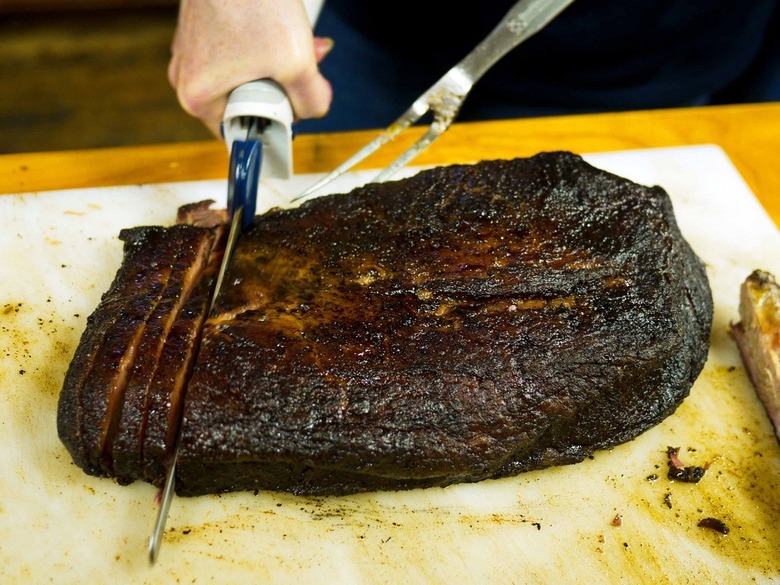Why This Man Says Beef Is The New SUV
CNN columnist John D. Sutter is not usually a meat eater, but he made an exception when he visited Snow's BBQ in Lexington, Texas, best known for its barbecue brisket. He tried it and loved it; it was, he wrote, "easily...one of the most food-orgasm-y things I've tasted." But the experience also helped remind him of the extent to which beef affects the environment.
Sutter said that while he enjoyed watching the 80-year-old barbecue pitmaster Norma Frances Tomanetz prepare the slabs of meat, it occurred to him that the meat was like an SUV. He computed that 1.27 pounds of meat from Snow's BBQ (the quantity he was served; he says that he only consumed about half of it) produced about 29 kilograms of carbon dioxide-equivalent gases, which is the same as burning enough fuel to drive an average American car for 70 miles.
He noted that 14.5 percent of greenhouse gas pollution comes from livestock, according to the United Nations Food and Agriculture Organization. About 65 percent of that comes from raising beef and dairy cattle. Sutter also notes that 43 percent of greenhouse gas emissions from beef cattle are due to "entreric fermentation," also known as methane burping or farting from the cows.
In some circles, he added, eating beef has come to be seen as "a hopelessly selfish, American indulgence; a middle finger to the planet."
But, Sutter notes, Snow's BBQ is only open once a week. "Order a small plate. More than a pound of anything is way too much. That's especially true for beef," he concluded. It is especially true if we're trying to reduce our carbon footprint.
